|
Genres, Themes, Actors, and Directors:
- Biopics
- Carl Reiner Films
- Cornel Wilde Films
- Flashback Films
- Has-Beens
- Mickey Rooney Films
- Rise-and-Fall
Response to Peary’s Review:
As Peary notes, Dick Van Dyke may very well have had “his best movie role” as silent comedian Billy Bright in this “offbeat” pseudo-biopic (loosely based on the life of Buster Keaton). Ironically, the film itself is far from comedic — indeed, it’s actually difficult to watch at times, as the philandering, ill-tempered, criminally self-absorbed Bright seemingly does everything in his power to ruin his chances for personal happiness. The scene in which Bright drives up to his house and mistakes the neighbor kid for his own is absolutely tragic:
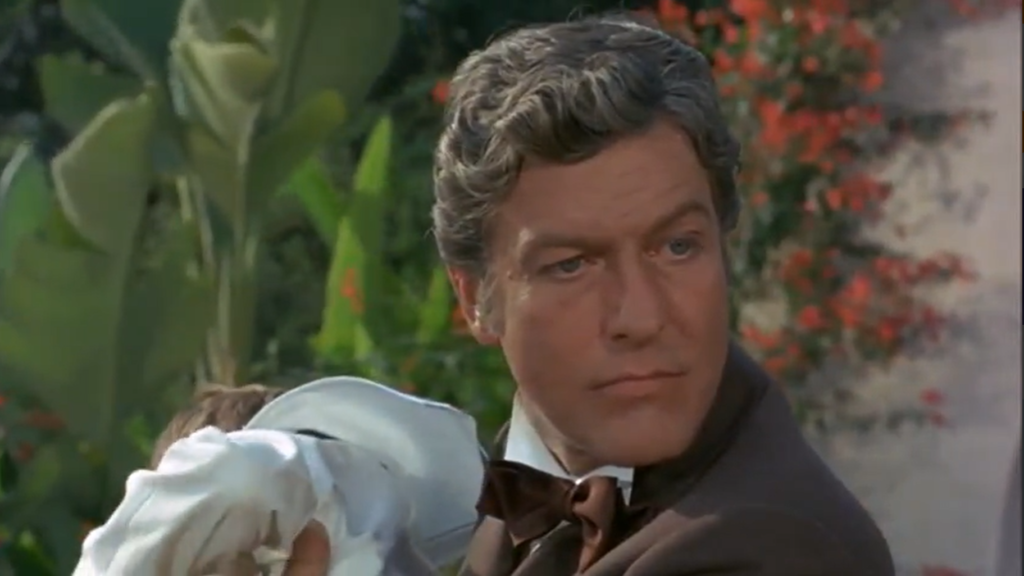
It reminded me of the scene in Payday (1971) where Maury Dann arrives “either four months too early or eight months too late” for his child’s birthday. Nonetheless, if you can find a copy of it, The Comic is worth watching at least once, due primarily to its “fine performances, impressive comical sequences, and sharp satire.”
Note: While this film isn’t technically a “biopic”, I’m classifying it as such simply because it follows the same basic structure.
Redeeming Qualities:
- Van Dyke’s stand-out performances in the sepia-toned silent film sequence (had he been born during the silent comedy era, he would undoubtedly have been a big name)
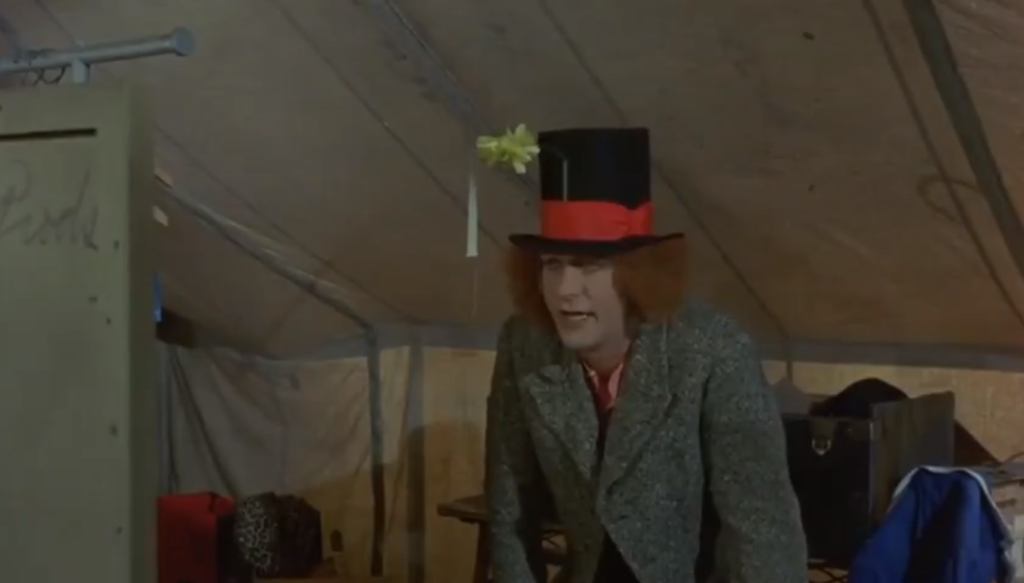
- Michele Lee’s sympathetic performance as Bright’s long-suffering wife
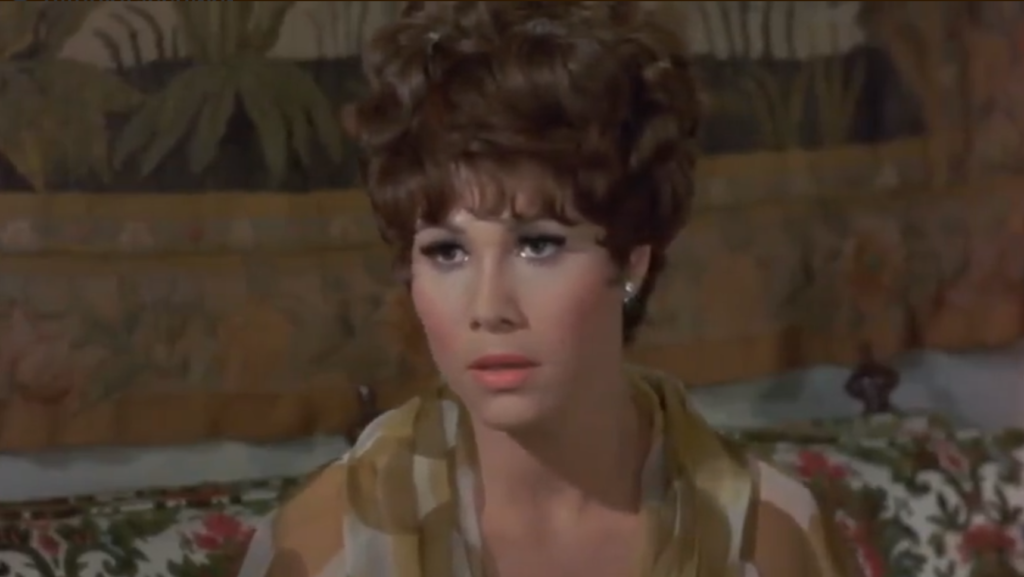
- Mickey Rooney playing second-bill comedian as “Cockeye”
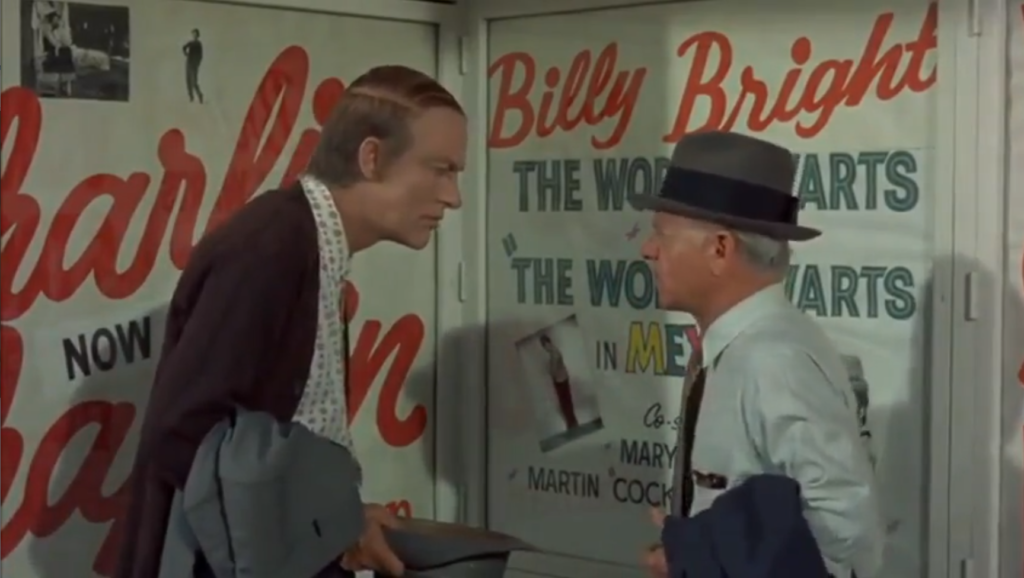
Must See?
No, but it’s worth watching, especially if you’re a fan of silent comedy and/or Dick Van Dyke.
Links:
|
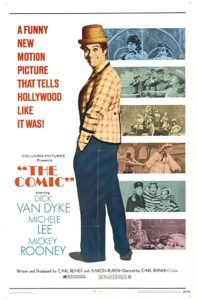




2 thoughts on “Comic, The (1969)”
A once-must, as an underrated film that needs to be re-discovered.
Writer/director Carl Reiner’s second feature-film is seemingly all-but-forgotten – which is a shame. For a number of reasons, it’s a satisfying find.
Leading off is, of course, Van Dyke’s performance as a prominent silent film comic (nevertheless ultimately in the shadow of the likes of Chaplin) who pays a high price for arrogance and selfishness. The overall well-meaning nature of ‘The Comic’ (and its intent as homage) notwithstanding, it must have been a risk for Van Dyke to take on such an unsympathetic role. Almost from the moment we first see him as a person – as opposed to a comic – this guy is not easy to like: he is totally focused on his career and appreciates people mainly in terms of whether and how they appreciate him. (This is made painfully clear when we see him using the start of his honeymoon as the main backdrop for a film.) Van Dyke trusts the script completely without any attempt to win us over to his character’s side. Van Dyke’s Billy Bright is not so bright – even when it comes to his own career: he shoots himself in the foot by refusing to make the switch to the sound era, claiming that true comics do not need sound (although they did need title cards in silents, didn’t they?).
Simultaneously, ‘The Comic’ has quite a bit to say about the film industry itself. Not a lot that will be news to us: we’d seen the silent-to-sound era covered in ‘Singin’ in the Rain’; we’ve always known that who a person is on-screen is quite often far removed from who he/she is in real life; and we know that Hollywood types are notorious for being phony. All that and more is served up here. But it seems we are reminded that what happens off-screen always pales in importance to the value of what happens on. This is pointed up by the very enjoyable series of scenes from Bright’s films. We see clip after clip and realize That’s Entertainment.
The supporting players are fine (Lee and Rooney in particular). But the film is briefly stolen from everyone by Reiner’s own turn as Bright’s agent. In one hilarious sequence, Reiner takes Van Dyke to lunch to tell him good news about rejuvenating his career – and he simply can’t stay off the phone (typical Hollywood agent behavior but Reiner does it brilliantly).
‘The Comic’ suffers somewhat from a low budget. It should have been filmed with a bit more panache – and whoever did the make-up for the actors when they age did a less-than-impressive job. But the film’s ‘faults’ can be easily overlooked. This is a film worth seeking out. (I happened to catch it recently on TCM.)
The final scene is memorable and a bit haunting.
Favorite bit: the Hollywood phony giving the eulogy at Bright’s funeral is, at Bright’s request and during the eulogy, hit in the face with a cream pie. Charming.
btw: Gay audiences will be intrigued by Van Dyke’s additional small role as Bright’s son: a somewhat subtle delivery of a gay stereotype. Nicely done.